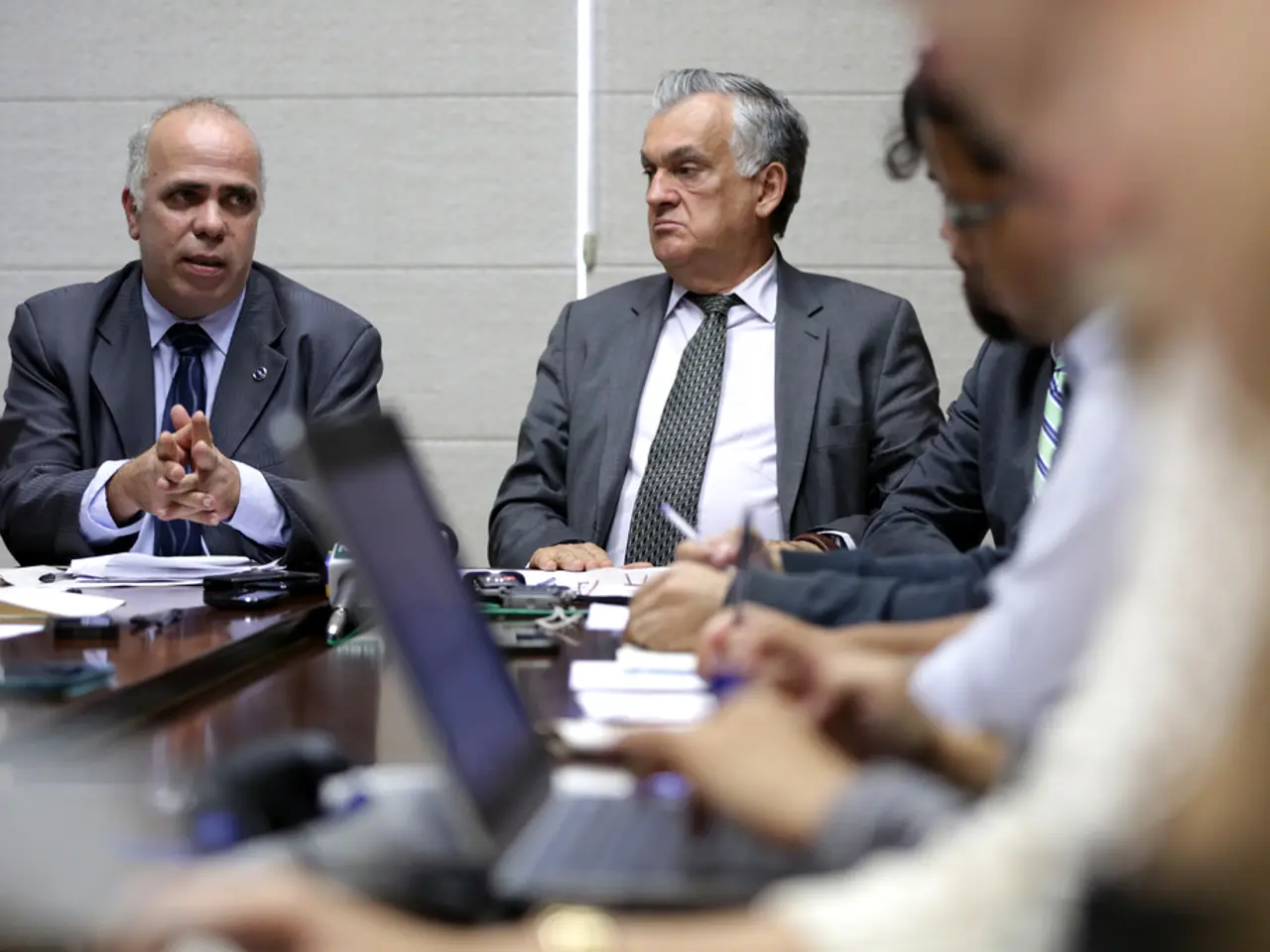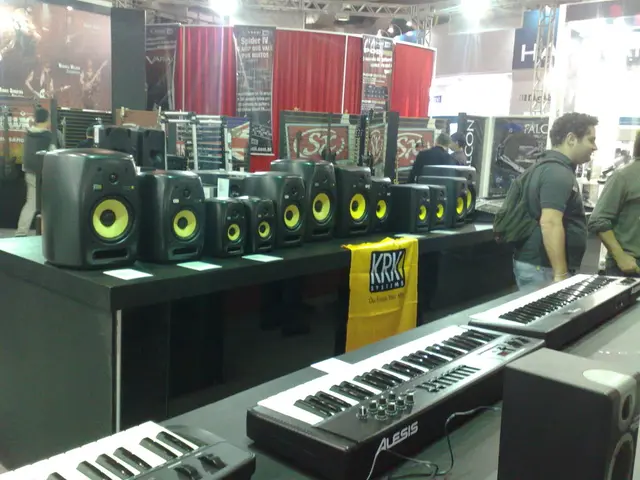Tech symposium showcases Trump's affinity for technology, amplifying Musk vs. Silicon Valley division; AI development championed by tech powerhouses
In a move intended to demonstrate unity between President Donald Trump and Silicon Valley, a White House dinner was held, attended by tech luminaries such as Tim Cook, Sam Altman, Sundar Pichai, and Mark Zuckerberg. However, one notable absence was Elon Musk, who had previously been a close advisor to the President.
The dinner served as a platform for Trump to highlight his cooperative relationship with industry, emphasizing loosened regulation and addressing energy demands of new data centres. He also used the occasion to boast about his pro-business agenda, which was warmly received by the executives present.
Sam Altman, who was once sceptical of Trump, has since changed his tune, crediting the President as a "pro-innovation president" and praising his leadership for America's tech edge. Altman, along with Pichai, thanked the President for his role in fostering a conducive environment for tech initiatives. Pichai stated that Google was "incredibly thankful for the partnership of everyone in this room, and to the first lady and the administration for leading the way."
Cook, who had previously sparred with Trump over tariffs, has become a more regular visitor to the White House. He pledged that Apple would spend $600bn in the US, praising the administration's focus on domestic manufacturing.
Musk and Trump's dispute arose from disagreements over Trump's tax-and-spend plan, leading to a public feud and Musk threatening to launch his own political party. Despite being invited to the dinner, Musk chose not to attend, sending a representative instead. The exact reasons for his absence remain unclear, but his decision marked a reversal from his previous willingness to support Trump's re-election campaign with nearly $300m.
The spectacle of the tech leaders offering praise reinforces an awkward truth: the administration is centralising power in ways that leave companies more dependent on Washington's favour. Jed Dorsheimer, an analyst at William Blair, expressed concern that Musk's political ventures could drag on Tesla's already weakened stock due to investor fatigue with distractions.
The dinner also showcased Trump's ability to command Silicon Valley's public loyalty, but also the costs of falling out with him. For Musk, being on the outside looking in may prove more damaging than any regulatory hurdle. The administration's promises to cut red tape and accelerate AI adoption may leave companies more dependent on Washington's favour, a risk that some tech leaders are keen to avoid.
Satya Nadella and Sundar Pichai each rolled out education initiatives, promising AI training programs that would reach millions of students. The executives' thanks and discussions about multibillion-dollar investments in US chip manufacturing and AI education underscored the potential benefits of a close relationship with the White House.
The dinner, while demonstrating Trump's ability to command loyalty, also highlighted the potential costs of estrangement for tech leaders. The tech industry's eagerness to avoid the president's wrath, mindful of targeted tariffs and antitrust pressure he has deployed in the past, underscores the delicate balance these companies must navigate.








